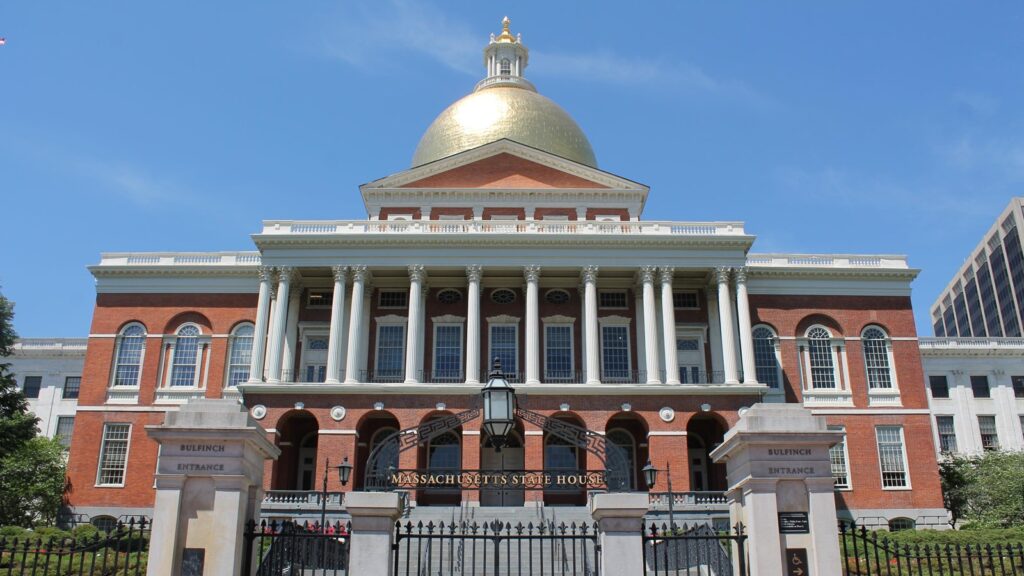
Anyone who sat through the days of Massachusetts Senate hearings on the current climate omnibus bill last week would be forgiven for having some questions about the efficiency of the legislative process in Massachusetts.
Our state legislature has had a poor reputation nationally for a number of reasons, including a lack of transparency and an autocratic structure that limits what legislation can even be brought to the floor. A 2013 ranking from Open States, a civic engagement website, gave Massachusetts an F, and a 2015 study from the Center for Public Integrity graded the state a D+ for transparency and ethics.
The Governor’s office and the Legislature routinely exempt themselves from public record requests, and the way members vote is often veiled from the public eye. This matters because more transparency would allow Massachusetts residents a better understanding of how their legislators are doing their jobs and whether they’re voting in the ways that their constituents expect them to.
The climate bill that passed the senate last week included a number of very good amendments, including, among a number of other important successes:
- Directing the DPU to consider climate goals when evaluating expansion of gas distribution service to a new territory if such proposals 1) don’t comply with state law on greenhouse gas emission reductions, 2) don’t protect ratepayers from the cost of stranded assets, and 3) if an alternative to gas service is available.
- Giving the DPU the power to refuse a new customer request for gas services if an adequate renewable substitute is available.
- And importantly, It removes biomass from the definition of “non-emitting energy” for municipal light plants, which was set to be added in 2026.
There were too many other important amendments to list here, but you can see for yourself. The measure must now be reconciled with the House.
However, this process would be much more efficient and responsive to the needs of the citizens of the Commonwealth with some important improvements to the structure of the legislature.
First, every public body in the state is subject to the Open Meeting Law… except the Legislature! The ability of citizens to affect legislation would be greatly enhanced if citizens could actually see the sausage being made.
Secondly, the lack of term limits for leadership means that change is extremely slow to come to the House. Essentially, the Speaker can serve as long as they want to. That means that only legislation approved by that one person is likely to move forward.
And the practice of paying stipends (above their salaries) to members of the legislature who hold leadership and committee positions should be ended. As it is, members of the legislature who receive stipends are financially highly dependent on the favor of leadership, meaning that legislation not approved of by leadership is unlikely to make it out of committee.
State Auditor Diana DiZoglio, who has previous personal experience as both a Representative and a Senator, is fighting an uphill battle to use the power of her office to reform the Massachusetts legislature through re-instituting the practice of regularly auditing the legislature on their procedures and financial dealings.
However, when she sent a letter to House and Senate leadership informing them of her intention, Ronald Mariano, Speaker of the Massachusetts House of Representatives, and Karen Spilka, President of the Massachusetts Senate, both indicated that they will not comply with an audit.
So DiZoglio is taking her quest to the voters, after obtaining enough signatures for a ballot initiative to audit the Legislature; the initiative will be on the ballot this fall. It’s too early to tell if that will be the solution, but at least it’s a start.
You can find more information at the Coalition to Reform Our Legislature.
References:
WBGH: The Mass. Legislature doesn’t see the world like the rest of us — and it doesn’t have to
WBUR: It’s time to audit the Mass. Legislature
Mass.gov: State Auditor DiZoglio Issues Letter to Attorney General Campbell Regarding MA Legislative Audit
Mass Power Forward: What Is in the Climate Bill